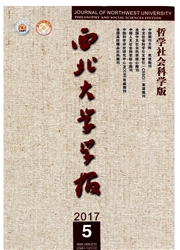

 中文摘要:
中文摘要:
介护保险作为日本积极应对老龄化问题的一项制度措施,在提高老年人生活质量方面产生了积极推动作用。本文基于日本介护保险的实践,通过对长期护理保险的地位、方式、责任、主体及服务等核心问题的辨析,认为长期护理保险是一种独立的社会保险而非从属险种,强调服务供给而非现金给予,注重共同承担保险费用而非单方面支付,支持引入市场机制的竞争性服务而非政府包揽服务,是一种生活照料与健康照护并重的服务模式。因此,对中国构建长期护理保险制度的启示是,需要设定科学的护理等级认定流程与内容标准,重视老年人护理的预防服务,实现医疗保险、养老保险与长期护理保险的动态平衡,建立居家养老、社区养老和机构养老的长效互动机制,多方共同参与护理保险筹资和护理服务递送。
 英文摘要:
英文摘要:
The Japanese Long -term Care Insurance (LTCI) program is a positive countermeasure to face the ageing problem. And the LTCI has been proved to be helpful in enhancing the living qualities of the old. This paper focuses on the analysis of position, manner, responsibility, main body and service of the LTCI. We sug- gest that the LTCI should be an independent social insurance, rather than subordinating to the other insur- ances. Secondly, the LTCI emphasizes supply of service more than cash. Thirdly, the costs of LTCI are bur- dened by the public rather than one single person. Fourthly, the services should be controlled by the market mechanism rather than the government. Finally, the LTCI should be a service mode that pays equal attention to daily care and health care. The Japanese LTCI provides some beneficial experience for the establishment of the Chinese LTCI. Firstly, a scientific process for level identification and standards for nursing services must be set up. Secondly, we should pay attention to the prevention services of the nursing care of the old. Thirdly, the medical insurance, the endowment insurance and the care insurance should be dynamically balanced. Fi- nally, the home endowment, community endowment and institution endowment should be interacted, to estab- lish a nursing service system that financially supported and participated by different main bodies.
 同期刊论文项目
同期刊论文项目
 同项目期刊论文
同项目期刊论文
 期刊信息
期刊信息
